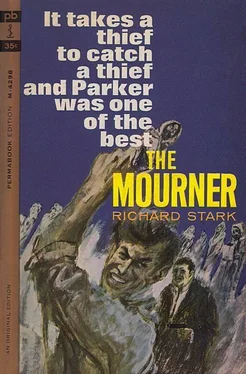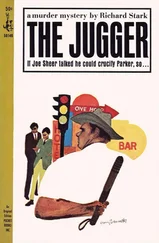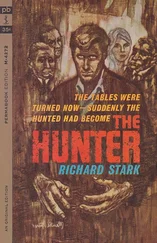Menlo, who did not answer, was glad of the delay. It gave him an opportunity to study the place, get used to it a little.
Everything was new, everything was different. Menlo’s confidence had been shaken by the incident in the little South Carolina town, and in the back of his mind there was the growing suspicion that he wasn’t going to make it. This was a whole new world in which he had no experience. He had no papers, no satisfactory explanation of who he was or where he came from. He had no real idea even where he was going.
There were too many things he hadn’t thought of, too many things he couldn’t foresee. Even in the mechanics of everyday living he was hampered by the fact that he was so brand new to the United States, and nothing here corresponded exactly with its counterpart in Klastrava. The trains he’d been on — he’d had to change twice — were unlike those at home; only one class of carriage — an open, uncompartmented, third-class type, but with upholstered seats of a first-class style. There had been no ticket booth at the entrance to the platform; tickets were taken by uniformed conductors on the train itself. From the important difference of language and currency down to the appearance and customs of restaurants, everything was subtly and jarringly strange. He had to feel his way, groping from one situation to the next, certain that everyone he met must know that he was a foreigner. In Klastrava a foreigner as obvious as he would have been under official surveillance long before this. He knew the United States was much more lax but he couldn’t just blunder along this way forever, carrying a suitcase full of unexplainable money and hoping for the best.
The currency was beginning to seem more real to him now, and he was beginning to understand why he’d had so much trouble with the old man. Most Americans were suspicious of fifty-dollar bills. He had managed with some difficulty to spend three of them, getting smaller bills in change, and he was using small bills and coins now, hoping they would last until he’d figured out what to do with the rest of the money. He realized, belatedly, that if he’d offered the old man a ten-dollar bill instead of fifty, there might have been no trouble.
It all depended on whether or not he was given time to get his bearings. He needed it, and at least in the beginning he was going to need assistance. Which meant Bett Harrow, and the statue. Bett Harrow could help him if she chose, and the mourner should put him in the debt of Bett Harrow’s rich and influential father. That was all he needed.
His taxi finally reached the canopy, and the rear door was jerked open. The cab driver was paid and tipped as was the doorman. A bellboy carried his suitcases — the one on the left contained the money, the one on the right the mourner wrapped in clothing — to the desk and he too was tipped. The respectful but haughty clerk looked him in the eye. “Your name, sir?”
Name?
In panic, Menlo heard himself saying “Parker. Auguste Parker.”
Why did they want his name, before he’d so much as asked for a room? And why had he said Parker? On the way over from the railroad station he had invented an alias to use in signing the hotel register, but the abruptness of the question had thrown the name right out of his mind. So he had blurted out Parker’s without thinking, adding his own first name, and in the back of his mind the suspicion that he was going to fail loomed just a little larger.
The clerk had a drawer full of five-by-seven file cards. He looked at several and frowned. “I don’t seem to find your reservation, Mr. Parker.”
Menlo was not that much of a traveler. His infrequent jaunts in the past had always been in an official capacity; such problems as hotel reservations had always been taken care of by the Ministry. Coming to the United States, he had been checked into a Washington hotel by the Klastravian embassy officials.
But now he was traveling on his own, and he was doing things all wrong. “I don’t have a reservation. I only want a—”
“No reservation?” The clerk seemed unable to believe it for a second or two. Then a sudden frost hit him. “I’m terribly sorry, but we’re quite full up. You might try one of the hotels downtown; perhaps they could help you.”
Menlo and his suitcases were shunted aside. The fat man’s face reddened with anger, but there was nothing he could do. He was no longer Inspector Menlo. He was now merely a hunted refugee, alone and uncertain. Even a hotel clerk could treat him disdainfully with impunity.
After a minute he went back to the desk again, and caught the attention of the clerk. “Elizabeth Harrow,” he asked, “what room?”
The clerk looked. “Twelve twenty-three.”
“And I may call from where?”
“House telephones to your left, sir.”
The minute he reached for his suitcases a bellboy materialized, but he shook his head angrily and the bellboy went away. There was a point at which hesitancy and confusion could no longer be borne, when what was needed was a sharp, sudden show of aggressive certainty. He had pussyfooted long enough; it was not his style. He would put up with it no longer.
He even took offense at the bored tone with which the switchboard operator responded. His own voice was authoritative and brisk as he gave Bett Harrow’s room number. But there was no response; she was apparently not in her room.
He slammed the receiver down with annoyance, turned, caught the bellboy’s eye. The boy hurried over, and Menlo pointed imperiously at his suitcases.
“I wish to check this luggage. Are there facilities?”
“Yes, sir. Right over there by—”
“You may take the luggage, and bring me the claim check.”
“Yes, sir.”
He lit a cigarette. He had discovered a brand that combined the superior American tobacco with an adaptation of the Russian cardboard mouthpiece. There was an annoying wad of cotton or some foreign substance wedged down into the cardboard tube, but it didn’t alter the taste much. It would do.
When the boy returned with a square of numbered red plastic, Menlo tipped him a quarter and asked for the restaurant. The boy pointed it out, and Menlo marched resolutely through the wide doorway. He had come into the hotel looking soft and fat and slump-shouldered, but now he was his normal self again, carrying his bulk with lithe dignity.
He had steak, an American specialty. His table was next to a huge glass window overlooking the beach, and as he ate he watched the hotel guests there. A few were swimming, but most were merely walking about aimlessly or lying on pneumatic mattresses. A depressing number of the women, all in bright-colored bathing suits, were stout and middle-aged and ugly, but here and there was a tall and beautiful one, and these he watched with pleasure and a feeling of anticipation.
He ate a leisurely meal, and lingered at the table afterward to smoke a cigarette over a third cup of coffee. It was mid-afternoon, a slack time in the restaurant, so no effort was made to hurry him. When at last he paid his check, he took a chance and proffered one of the fifty-dollar bills. He was terrified of running short of the smaller bills again, and surely here a fifty-dollar bill wouldn’t seem unusual. The waiter didn’t seem to react at all, but took the bill and soon returned with a little tray full of change. In this country, he noted, a waiter’s tip was not automatically added on to the bill — at home it was a standard 10 per cent — but was left to the discretion of the diner. To be on the safe side he left a 15 per cent tip instead of 10, and strolled back out to the lobby.
Menlo crossed to the house phones and called Bett Harrow’s room again, and this time she was there. “Good afternoon, my dear, this is Auguste.”
Читать дальше












